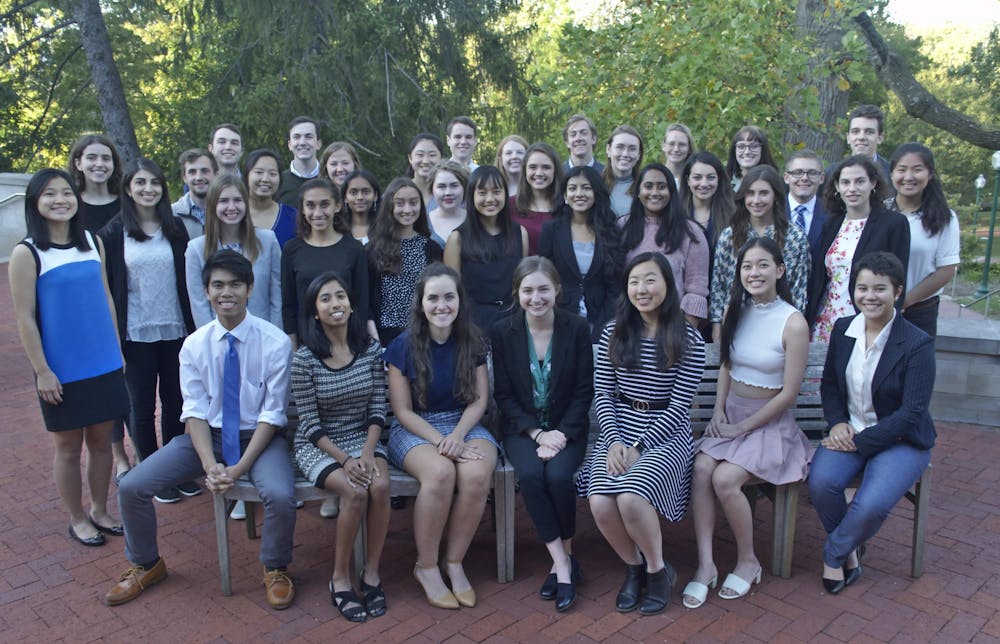Students don’t need to be in graduate school or members of faculty to have their research published. Undergraduate students have likely already done meaningful research without realizing it, said Abe Leite, a fifth-year student and co-editor-in-chief of the Indiana University Journal of Undergraduate Research.
The IUJUR debuted its fifth volume of peer-reviewed undergraduate research papers in early July, covering topics in the humanities, natural sciences, applied sciences and social sciences. The six papers featured in Volume V were written mostly during the 2018-2019 school year.
One of them examines irony, contradiction and Voltaire's Garden in the novel “Candide” by Voltaire and was written by Sydney Adams, an IU student studying psychology, clinical science and public health. Another paper, “Practices and Perspectives on Mental Health in the Balkan Countries: A Narrative Review” was written by Maya E. Lee, a 2019 IU graduate and research fellow at the National Institutes of Health in Bethesda, Maryland.
The submissions were accepted on a rolling basis throughout that year and were peer-reviewed by student reviewers as well as graduate students and members of faculty with expertise in the field.
“At a certain point, our job is really as a mentorship journal,” Leite said. “We’re committed to publishing undergraduate research and helping undergraduate research shine.”
Leite said papers with a strong chance at acceptance have strong, relevant and original theses in the discipline that the research was done. He has been a part of IUJUR for four years, previously working as an editor, reviewer and chair for the social sciences board. Leite said being a mentor to authors has been really meaningful to him.
He also said final projects and papers shouldn’t just be about achieving a high grade in the class and moving on. IUJUR reaches out to students in upper-level courses to publish research papers that are already being developed in those classes.
Isaac Thuesen, a student reviewer on the social sciences board for Volume V and recent IU graduate who studied sociology, history and Arabic, has been part of IUJUR since his freshman year.
“I just get so excited about research,” Thuesen said.
As a reviewer, he said he read manuscripts, suggested changes and returned them to authors to revise and resubmit the manuscript. More polished papers are sent to graduate students and faculty members for another round of reviews.
After expert review, the papers are returned to the author to address any suggested changes. When the changes are made and the paper is complete, IUJUR members make the decision of whether to publish it.
If the journal decides to publish the paper, it is line-edited and passed on to the visual design team, which makes it visually appealing and easy to read through. Finally, once all the papers are finalized, they are put together into a volume.
Stephanie Zhang, a recent IU graduate and managing editor of Volume V, said she fielded incoming submissions, kept track of deadlines and generally managed the entire submission process.
“I think one of the best things about IUJUR is the people,” she said.
Zhang studied biology and environmental and sustainability studies at IU and currently works at Hoosier Action, a liberal political action group based in southern Indiana. In college, Zhang did research in labs and later joined Timmy Global Health, a nonprofit that focuses on making health care accessible both locally and abroad.
IU has a Carnegie R1 Research Classification, which indicates very high research activity. Other R1 institutions include Boston, Harvard, Iowa State, Michigan State and New York universities.
“With the global challenges we’re facing right now, especially with regard to the coronavirus, it’s becoming ever more clear that research is a skill that needs to be developed to the fullest extent,” Thuesen said.
Volume VI, which will include IUJUR submission from 2019-2020, will be released toward the beginning of the fall semester.




